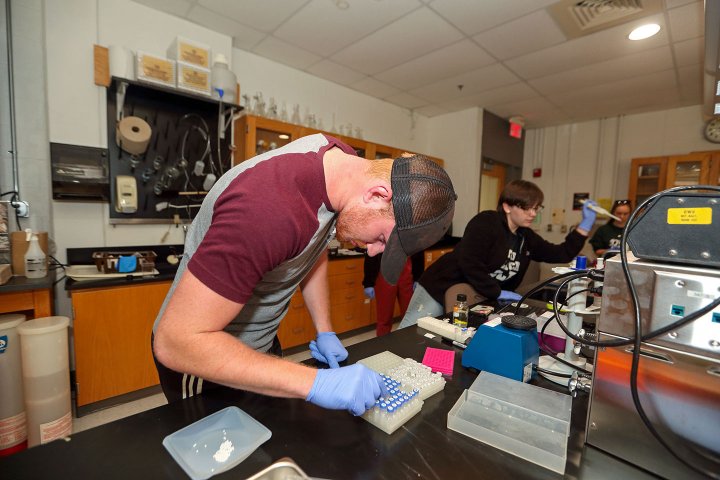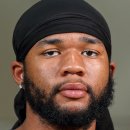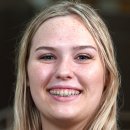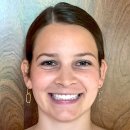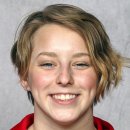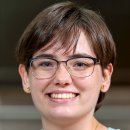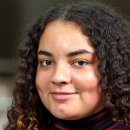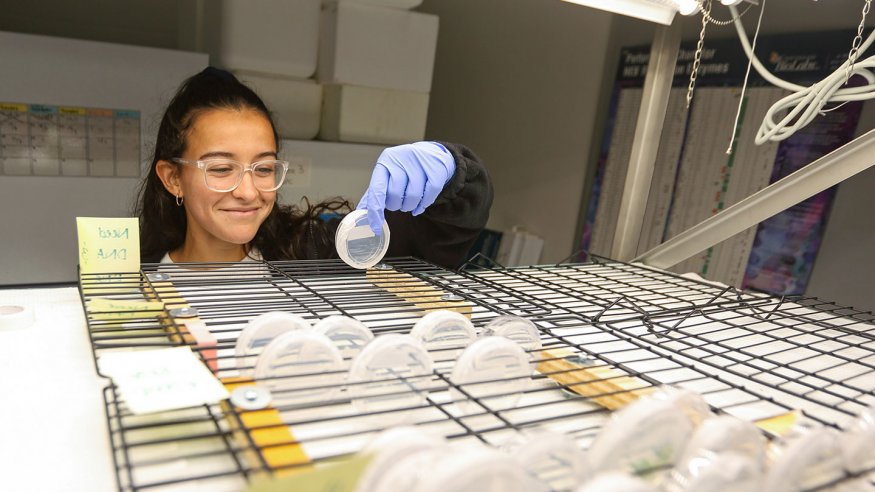
UPDATE: Budding Researchers
12 Ohio Wesleyan Students Aid Professor with NASA-Funded Plant Project
Updated November 17, 2021
Professor Chris Wolverton and four students working with him this summer and/or fall recently presented information about their NASA-funded research at the annual conference of the American Society for Gravitational and Space Research held Nov. 3-6 in Baltimore, Maryland.
The students – Leanna Bauer ’23, Regina Campbell ’22, Abbie Courtright ’21, and Sai Siddharth Suresh Kannan ’24 – presented the poster “Searching for Components of the Gravity Sensing System in Arabidopsis Plants” on behalf of Wolverton and all of his recent student-researchers.
At the conference, Wolverton also presented a “Transcriptomic Overview of Plant Responses Across a Continuum of Gravity Treatments,” and he served on a “Meet the PI” panel, geared toward high school students. He gave a similar presentation Nov. 12 at the virtual NASA GeneLab Analysis Working Group Public Workshop.
Original Story Published on August 7, 2021
Plants aren’t the only things that grow in the laboratory of Ohio Wesleyan University professor Chris Wolverton, Ph.D. Minds develop there, too.
A dozen OWU students participating in the University’s Summer Science Research Program spent 10 weeks this summer assisting Wolverton, professor of Biological Sciences, with his NASA-funded research into how plants respond to gravity.
Collecting and Analyzing Data
Their project, “Searching for Components of the Gravity Sensing Systems in Plants,” involved working “to confirm the genotype of 25 mutants we were testing for gravity response,” Wolverton said, “and they all worked hard to collect growth response data and analyze it.”
The Ohio Wesleyan student-scientists and their academic interests are:
- Leanna Bauer ’23 of Columbus, Ohio, an Environmental Studies major and Sociology/Anthropology minor.
- Regina Campbell ’22 of Plain City, Ohio, a Psychology, Biology, and Botany triple-major.
- Madison Cartnal ’24 of Newark, Ohio, a Pre-Medicine, Biology, and Environmental Science triple-major and Spanish minor.
- Alejandra Coronel-Zegarra ’22 of Hollywood, Florida, a Biochemistry and Management Economics double-major.
- Marquise Downing ’22 of Central Falls, Rhode Island, a Microbiology major.
- Abby Doza ’23 of Plain City, Ohio, a Pre-professional Zoology and Biology double-major and a Chemistry and Environmental Sustainability double-minor.
- Ross Eggleston ’22 of Lancaster, Ohio, a Pre-professional Zoology and Pre-Medicine double-major and Chemistry minor.
- Catie Hyatt ’22 of Lodi, Ohio, a Pre-Professional Zoology and Theatre double-major.
- Reagan Jennings ’23 of Everett, Washington, a Pre-professional Zoology and Biology double-major and a Chemistry and Environmental Sustainability double-minor.
- Sai Siddharth Suresh Kannan ’24 of Chennai, India, a Microbiology major and Data Analytics minor.
- Carly Schafer ’23 of Tiffin, Ohio, a Pre-Professional Zoology and Pre-Medicine double-major and Psychology minor.
- Athena Vakaleris ’22 of Dana Point, California, a Zoology and Philosophy double-major.
An Abstract Explanation
After wrapping up their research, the OWU students submitted an abstract explaining their work to the American Society for Gravitational and Space Research. They hope to be invited to make a poster presentation at the organization’s annual meeting in November in Baltimore.
In explanation of their project, the students collectively wrote:
Plant stems tend to grow upwards toward the sun while their roots grow down into the ground, but how exactly do they know this is the way to grow? Plants have cells in the tips of their roots that contain starch-filled organelles called amyloplasts, which will settle at the bottom of the cell, causing the roots to grow downward. Research has shown that the roots of a plant will still grow downward even in the absence of these amyloplasts.
Our lab is investigating to find the genes that cause plants to respond to gravity even when they are mutated to not contain starch. This is done by growing plants with over 30 different single mutations in the genes that are expressed in gravity response and recording the growth and angles of the root tips in every plant at different rotations.
Our goal is to narrow down the list of genes that are active in plant gravity response, even when plants have no starch, to better understand the processes by which plants grow successfully.
Wolverton already has been invited to present at the upcoming space research conference, where he will discuss “new results from our spaceflight study looking at the transcriptomic response of plants across a range of gravity treatments.”
A member of the OWU faculty since 2002, Wolverton has earned two NASA grants, to date, to support his research, which has included sending plant seedlings to the International Space Station in 2017. Ultimately, he hopes not only to determine the best protocols for growing plants in space, but also for improving plant viability, health, and crop yield on earth.
Ongoing Opportunities
Wolverton is continuing his work this semester with several more NASA-funded students assisting him. He also is working with Makaila Weir ’21, a Botany and Sociology/Anthropology double-major and Environmental Science minor. She is serving as a graduate research assistant in his lab before heading to Cornell University to complete a yearlong, fully funded research position.
“This fall we need to test the mutants for their transcript abundance using quantitative Real-time PCR,” Wolverton said. “This technique, which is the same one used in the ‘PCR test’ for SARS-CoV2 virus, is an extremely sensitive way to test for the presence of a specific sequence of nucleic acid in a sample.”
Learn more about Wolverton’s research and teaching through his blog, Gravitropic, and more about the Ohio Wesleyan Department of Biological Sciences at owu.edu/BiologicalSciences.
